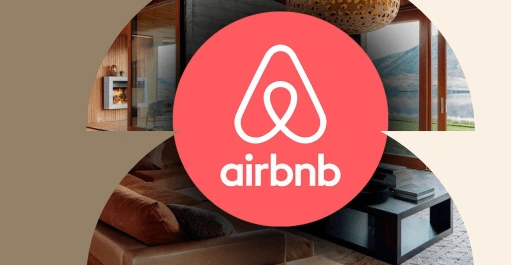Enhancing Airbnb’s Positioning
Like this project
Posted Dec 6, 2024
Analyzed Airbnb's gaps in serving business travelers and long-term renters, proposed tailored features, pricing models, and brand strategies to enhance appeal.
Likes
0
Views
21

Enhancing Airbnb’s Positioning for Business Travelers and Long-Term Renters in a Competitive Market
Airbnb has transformed the hospitality landscape since its inception, providing unique accommodation options that cater to a diverse range of travelers. However, as competition intensifies, particularly from traditional hotels and other rental platforms, there is a pressing need for Airbnb to refine its positioning strategy to attract business travelers and long-term renters. This case study explores strategies Airbnb can implement to enhance its appeal to these segments while navigating a competitive market.
Objective
To enhance Airbnb’s value proposition for business travelers and long-term renters by identifying unique customer needs and benchmarking against competitors. This analysis will yield a differentiated feature set and positioning strategy to better meet the demands of these segments.
Market Overview
The rise of remote work has led to an increase in demand for longer stays, with Airbnb's CEO emphasizing the potential of this market segment. 3
However, competition from hotels and traditional rental services is fierce, necessitating a strategic approach to maintain and grow its market presence
Understanding Customer Segments and Needs
Personas
Business Traveler Persona - "Michelle, the Corporate Consultant":
Age: 35
Needs: Fast Wi-Fi, quiet work area, easy access to client sites
Pain Points: Inconsistent workspace quality, lack of professional support services
Long-Term Renter Persona - "Arjun, the Digital Nomad":
Age: 29
Needs: Affordable monthly rates, homelike environment, local insights for living and working comfortably
Pain Points: High costs for longer stays, limited access to resources like coworking spaces
Competitor Analysis and Market Gaps
Competitor Review
Vrbo (Vacation Rentals by Owner) - Focuses exclusively on entire home rentals, appealing primarily to families and groups.
Booking.com - A comprehensive travel platform offering hotels and vacation rentals.
Traditional Hotels: Reliable amenities for business travelers and access to workspace but lack the “local experience” Airbnb offers.
Gaps Identified
For Business Travelers: Airbnb lacks specialized business-ready listings that guarantee amenities needed for productivity, such as quiet workspaces or high-speed internet, and often doesn’t provide tailored services (e.g., conference room access). Despite Airbnb's initiatives like "Airbnb for Work," only 32% of business travelers prefer Airbnb over hotels due to concerns about reliability and convenience. 8
For Long-Term Renters: Airbnb is limited in offering discounted monthly rates and local resources that make longer stays more convenient and affordable, unlike traditional rental properties. The growing trend of remote work has increased demand for longer stays, yet many traditional platforms focus on short-term rentals.
Customer Journey and Pain Points
Current Customer Journey
Awareness & Search: Customers use Airbnb’s search filters but find limited options for business travel or long-term stays.
Booking: Business travelers may feel uncertain about the reliability of workspace amenities, and long-term renters often face high costs with limited flexibility.
During Stay: Business travelers lack additional support such as workspace access, while long-term renters lack integration into the local community (e.g., guides to coworking spaces or community events).
Key Pain Points
Inconsistent Amenities: Business travelers experience variability in workspace quality and internet speed. Competing with traditional rental markets requires Airbnb to ensure consistent quality
Cost for Long Stays: Long-term renters face high costs and lack financial flexibility for longer stays. Many business travelers prefer hotels due to loyalty programs and perceived reliability.
Limited Community and Local Support: Long-term renters struggle with integrating into a new locale and finding services to make their stay comfortable.
Proposed Value Proposition and Features
Differentiation Strategy
To address these gaps, Airbnb can implement targeted features and services for business travelers and long-term renters to enhance its market positioning and meet the unique needs of each segment.
For Business Travelers
Ensure listings are tagged as "business-ready" OR introduce a filter for “Business Ready” properties that meet specific requirements like fast Wi-Fi, ergonomic workspaces, and quiet environments.
Collaborate with coworking spaces or hotels to provide business travelers with access to professional work environments during their stay.
Offer a business customer support line to assist with urgent needs or special requests, such as meeting room bookings or additional office supplies.
For Long-Term Renters
Offer monthly rates with flexible payment options, making it more affordable for customers who need extended accommodations.
Create special packages or discounts for extended stays that can entice users away from traditional rental options.
Dedicated long-term stay customer service for managing booking extensions, payment flexibility, and access to local amenities (e.g., laundry services, grocery delivery).
Promote flexible leasing options that allow stays from one month up to a year without the constraints of traditional leases
Strengthen Brand Positioning
Airbnb needs to reinforce its brand perception by:
Community Engagement: Foster a sense of community among users through local experiences and events that enhance the travel experience beyond mere accommodation. 9
Conclusion
As Airbnb continues to evolve within the hospitality industry, enhancing its positioning for business travelers and long-term renters is essential for sustaining growth in an increasingly competitive landscape. By focusing on tailored offerings that meet the specific needs of these segments, reinforcing brand identity, and implementing strategic pricing models, Airbnb can solidify its market position and drive future success. The potential for growth in these areas is significant; thus, proactive measures will be crucial in leveraging this opportunity effectively.



